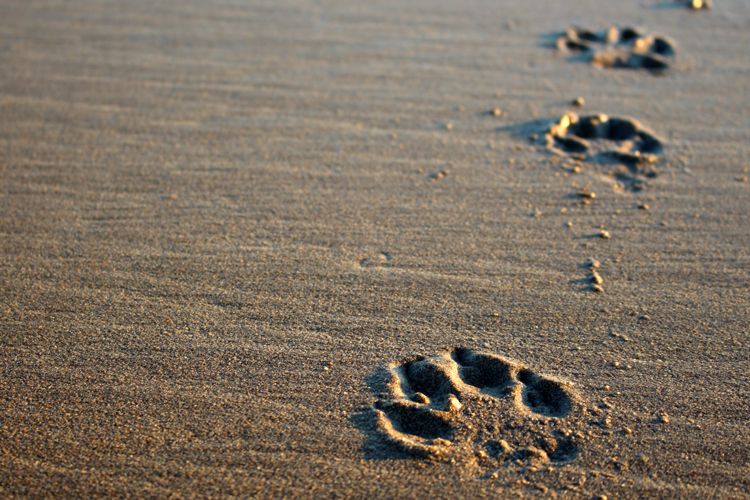Declutter And Organize Your Life Using These Digital And Analog Tips
Time to purge.
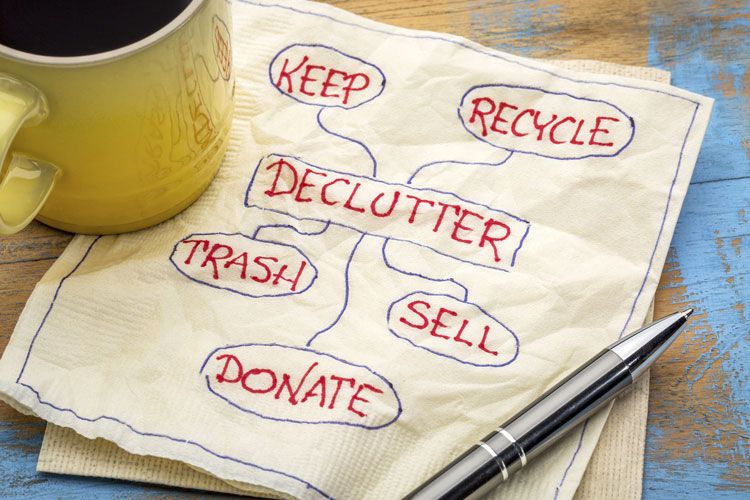
In our time-crunch age of digital devices and two-earner households, so many people need help organizing their lives. It’s no surprise that the decluttering industry has mushroomed with the 30-year-old National Association of Professional Organizers, for example, boasting nearly 4,000 members.
The good (and cheaper) news is you don’t have to hire a pro to streamline your stuff if things having gotten a bit out of control. There are lots of ways to organize your digital and analog life – everything from taxes to passwords.
If you’re feeling overwhelmed by the prospect of decluttering, resolve to break it into small, manageable tasks. For example, collect emails from family members into one “Family” folder. Sort through the utility drawer in your kitchen and get rid of the old stuff. Dump the apps on your phone you haven’t used in over a year. That sort of thing, along with all these tips.
Get Untangled
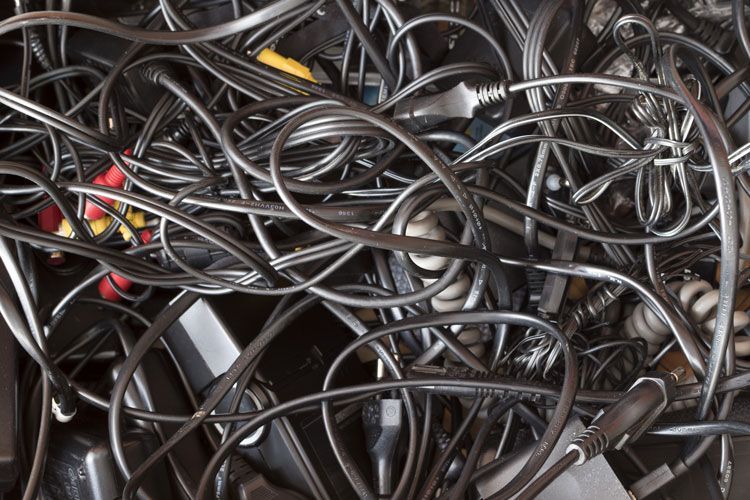
Wifi and Bluetooth haven’t done much to cut back on the tangles of wires and cables around our desks, have they? Neaten up by routing cables together inside flexible tubes, or tying them together with plastic zip ties. Search online for “cord management” and you’ll find lots of options.
The Password Is...
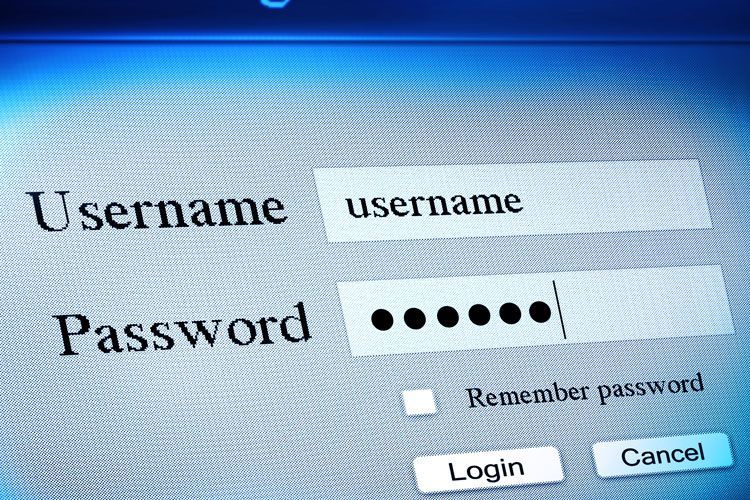
If you have dozens of passwords typed into a file on your computer or scrawled on a piece of paper somewhere, ditch that and use a password manager like LastPass, Dashlane, or 1Password. Hesitant? Nervous about being dependent on one password to access all the others? Time to get over it. Life’s too short. [Dig Deeper: The Four Most Popular Password Managers]
Inbox Chaos

Label your email.
If you use an easily searchable webmail service like Gmail, you probably rely on searches to find old messages. That’s great if you’re sure they contain a particular search term or come from a particular sender, but memories can be unreliable, as science and experience make very clear.
So label emails that you want to hold onto (“financial,” “family and friends,” “taxes,” “school,” “work,” “medical,” etc.) Years from now when you’re racking your brains to remember who sent you that information about that, you know, that medical related thing, what was it called? – you’ll be glad you did.
Paper Trails

File tax returns, financial statements, and other important documents in hanging folders in a plastic bin and stash it somewhere out of the way — way out of the way, especially if you also have digital copies from your accountant, financial advisor, or fund manager (just make sure those digital files are backed up).
Tackle the onslaught of loose papers by sorting them into five stacks:
- To-Do: Keep this in a designated tray in plain sight.
- Household: Put these items (receipts, coupons, manuals, anything you to keep your household running) in a drawer with dividers.
- File: Separate this pile into papers you want to hold onto physically (put those in a file cabinet) and papers where only the information is important, not the sheet of paper itself. Scan those. Give the computer files descriptive names, and file them in clearly marked folders on your computer and/or in cloud storage. Then you can reassign the sheets of paper to the Shred stack.
- Recycle
- Shred
You may be thinking: "What if I don't have a scanner?" Well, you have a smart phone that probably takes great photos. Problem solved!
Time To Shred
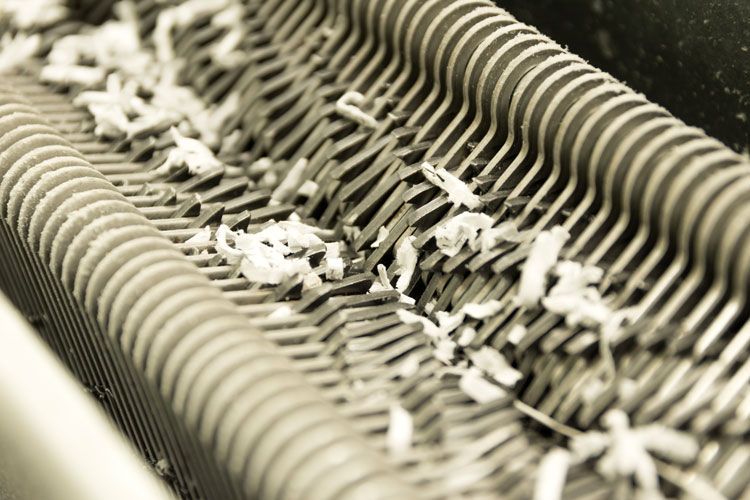
Speaking of which, get yourself a crosscut shredder. They’re quite compact and can be stashed under your desk or anywhere you could put a small wastebasket. Most can even destroy old credit cards and CD-ROMS, which you probably can’t even access anymore. Shred all papers that contain any identifying information before recycling. It’ll help prevent identity theft. (And throwing the shreds around can help relieve tension.)
Scan & Save
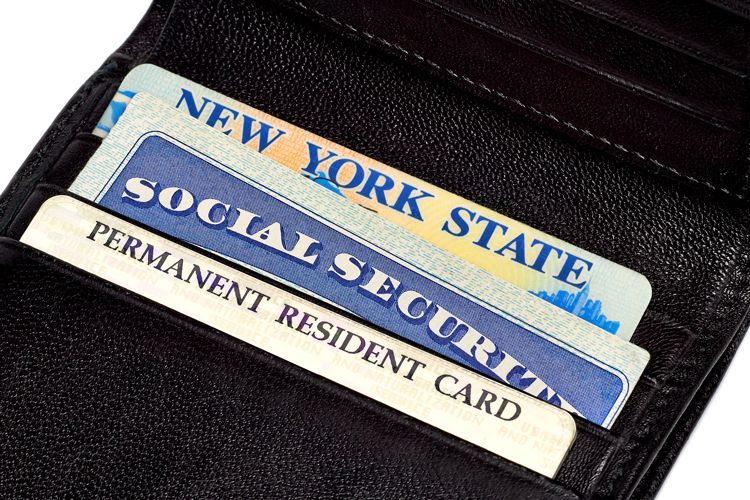
Also scan (or take photos of) important documents you do need to keep — birth certificates, social security cards, driver’s licenses, the photo spread of your passport. Keep the scans in an encrypted location on your computer. (Or in an Everplan since safely storing important stuff is our purpose in life!) This can save you some trouble in the event the original gets lost.
Photo Finish

Keep your digital photos chronological, sorted into folders named for the month and year. Within those folders, put the photos in sub-folders named for the event or subject.
If you’re giving descriptive file names to images, you can keep the camera’s automatic naming. For example, if your camera names an image IMG_1234.JPG, rename it IMG_1234_Sarah_Graduation.JPG. That way your photos will stay listed in the order in which they were taken.
This is also the perfect time to pare down and delete photos that aren't the most important. It's easy to weed out the duplicates or ones you took to remind you to pick up more orange juice at the store, but try to limit the amount you have per event. Yes, you might want to keep all 400 photos from your son's 12th birthday party or daughters recital, but be realistic.
Professional photographers take thousands of photos per shoot, but it's their job to narrow it down to the best. If you want your photos to be enjoyed by future generations, and not just become an overwhelming backup that's impossible for anyone to sort through, use the same type of thinking.
Last Bits
Consider the practical value of the physical items without strong sentimental value cluttering up your living space. Think of it the same way a business might: Anything that won't make you your money back is a “sunk cost,” meaning its only value is its future value. If it has no future value to you, it doesn’t matter how much you spent on it. Either start using it, give it someone who can use it, or get rid of it.
Related Reads: Important Document Cheat Sheet: Five Tips To Get You Started | 5 Tips For Helping Your Aging Parents Get Organized
- All The Information You Need To Share About...It’s incredibly sad to think of our pets without us, but here’s your chance...Read more
- Estate Planning For Your PetsAmerica is approaching a belly rub crisis. Or, in the case of cats, that...Read more
- What To Say To Someone Grieving The Loss Of A PetFor most people, it’s not just a dog, cat, or other domesticated animal....Read more
- Planuary: Organizing For The New YearIf the turn of a new year inspires you to finally get your life in order, we...Read more


